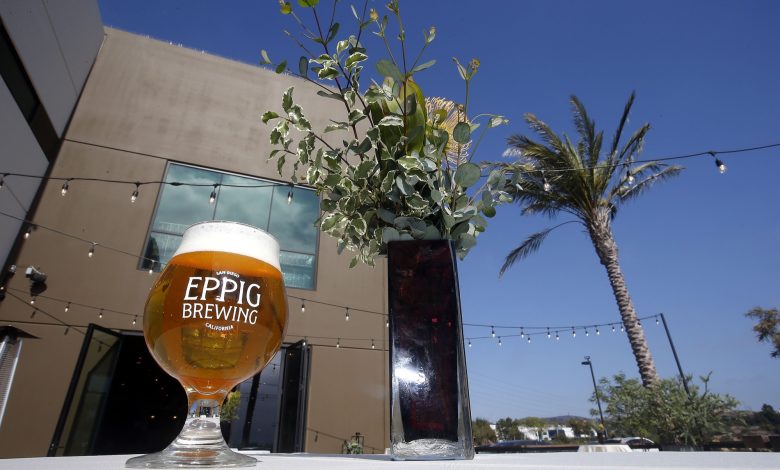
The past year-and-a-half has been the most universally challenging period for American breweries post-Prohibition. Already losing market share to alternative alcoholic beverages entering the retail space such as hard seltzer and hard kombucha, craft beer as a segment was on the decline even before a global pandemic landed on U.S. shores and shut down businesses big and small. It’s no wonder fears were so widespread that so many craft breweries—particularly smaller, family-run operations—would go out of business in great numbers last March. And while a small percentage of breweries suffered that fate, the majority of them—even in suds-saturated San Diego County, which is home to 138 brewing companies (and far more brewery-owned venues)—buckled down and weathered the threatening storm that was COVID-19. Today, we are examining how one such local interest, Eppig Brewing, did so.
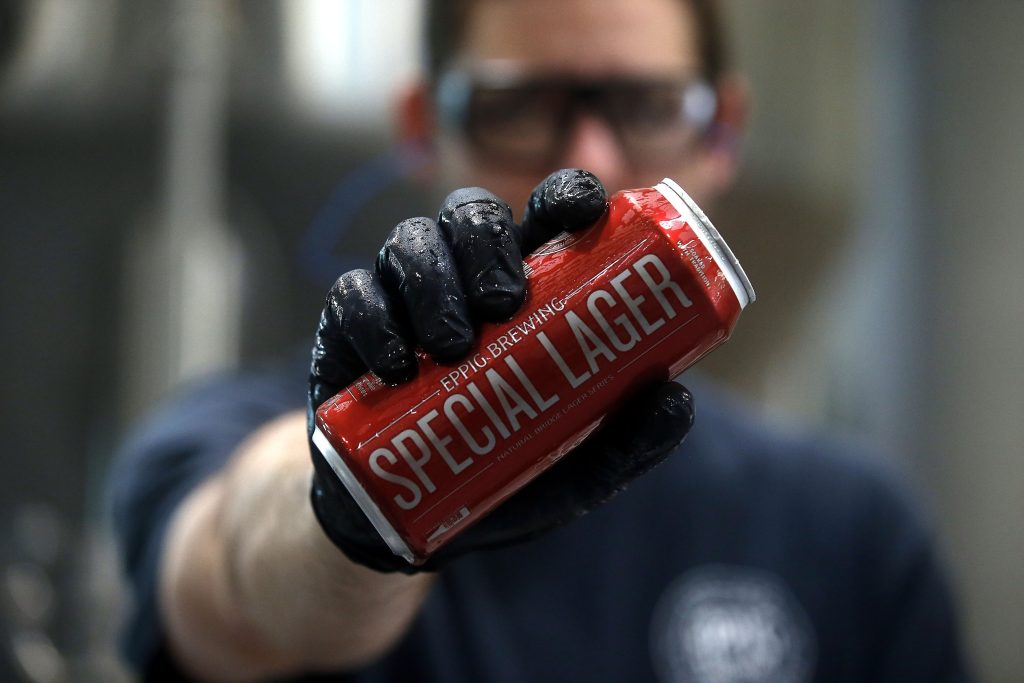
A Shroud Cast Over a Would-be Banner Year
Eppig faced more challenges than the average brewing company. After operating out of a small, 1,850-square-foot lease-to-brew suite in H.G. Fenton’s North Park Brewery Igniter campus for three years, the company had fully transitioned to a new, much larger 16,000-square-foot new-construction production facility, tasting room and beer hall in Vista. This allowed the company to vastly increase production, while significantly upping the amount of beer the it could sell across its own bar at the best margins; two vitally important factors justifying their much-higher rent. In addition to Vista, the company also operates San Diego’s only brewery-owned waterfront tasting room in Point Loma, a venue that has been successful since debuting in 2018.
Settled in from a manufacturing standpoint and equipped with two retail centers with high-volume capabilities, Eppig was poised for a big year in 2020. Then came the pandemic, followed by the State-mandated March shutdown and a slew of ever-changing regulations significantly impacting the manner in which Eppig and other breweries could sell their products and, when on-site service was an option, how many patrons could be accommodated. Owners Stephanie Eppig and Todd Warshaw doubted their ability to hold out from the moment Governor Gavin Newsom initiated the first shutdown, unable to see how they would be able to pay their rent and keep up with other expenses with demand for kegged beer almost non-existent due to restaurants, bars and other draft-equipped venues being shut down, dark or too gray to move through draft offerings.
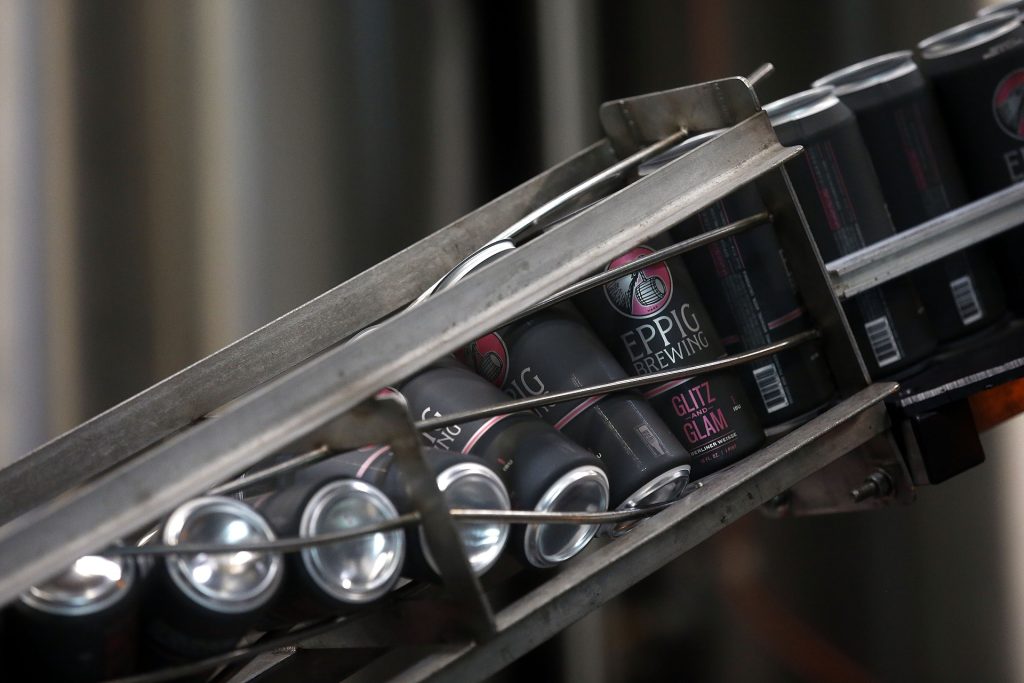
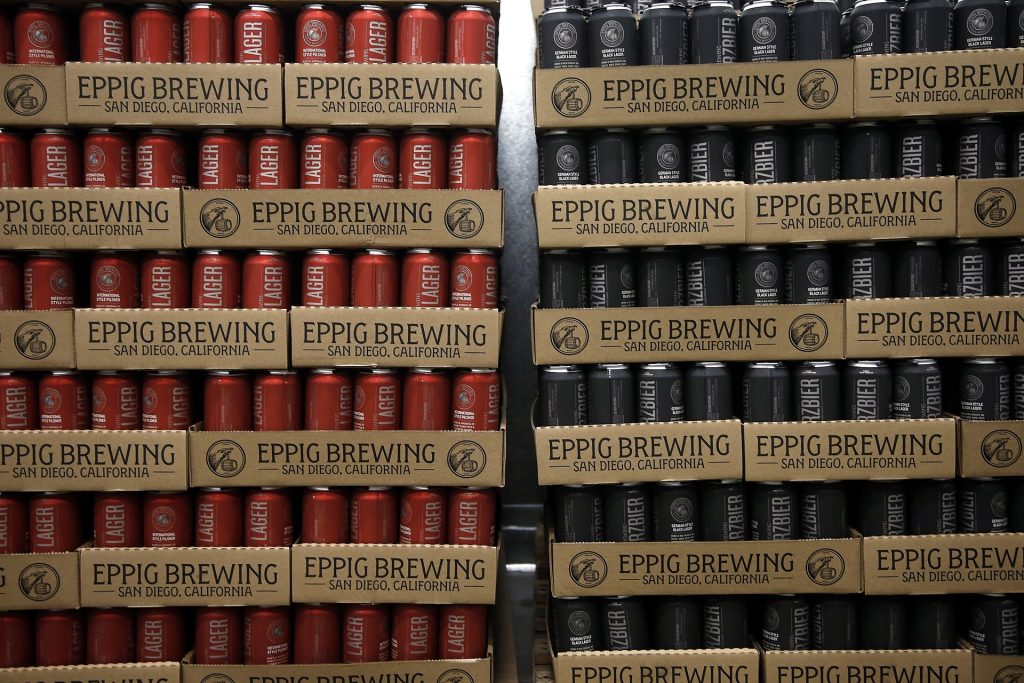
Like so many other breweries, it quickly became evident that converting to a canning-focused operation would be key, but it didn’t take long for increased demand for aluminum, canning apparatuses and mobile-canning services made it difficult to utilize packaging as a lifeline.
“In a good year, aluminum can supply is stretched thin and lead times are five-to-seven weeks. The sudden shift by an entire world to a different business model meant those lead times sometimes hit 10-to-15 weeks, which is nearly impossible to plan for at our scale. That includes crowlers, not just 12- and 16-ounce cans,” says Warshaw. Fortunately, Eppig already had an established canning operation. Similarly, the company’s website included an online-store section, which made it easy to take another step that was popularly helpful for breweries during the pandemic—converting existing website properties into e-tail portals and expanding methods for getting products to customers. “When the scope of the closures became a little clearer and we saw this wasn’t going to be over in four or five weeks, we increased our online offerings, adding local curbside pickup and limited delivery, then increased our promotion of these options via social media.”
Persistent, Perpetual Pivoting
When asked what adjustments needed to be made when the State changed up its restrictions, Warshaw replies, “Which time? In all seriousness, each reopening was drastically different and required a complete revamp of nearly every aspect of our business. We were closed down in mid-March 2020, shifting to 100% beer to-go. In June 2020 we were open outdoors, which was quickly followed up by the bona-fide meal requirement. Then we were closed down again in December and only doing to-go before being reopened in February, still outdoors with a food requirement but different hours permitted. There was another permissible-hour shift in mid-March 2021, no more food requirement. Then indoor seating was slowly added back in May until we were brought to full capacity again in June. Each of those changes meant adjusting our company policies—no cash, no growler fills, employee temperature checks, mask requirements for guests and employees, plus signage and employee training for all of it.”
Warshaw says the hardest part of rolling with the changes was communicating to customers. That extended beyond his front-line staff to scores of personal interactions he had with patrons, many of which he sympathized with as even he was having trouble keeping up with shifting regulations for his business. Not all of his and his staff’s interactions with the public were civil.
In May, a customer became angry when refused service at one of Eppig’s tasting rooms unless he put on a mask (which was required by law at that time). After becoming belligerent and berating staff, said customer issued a Nazi-style salute before exiting the tasting room. The incident inspired Warshaw, Eppig and partners Nathan Stephens and Clayton LeBlanc to take to Eppig’s social-media platforms to defend their staff, condemn the customer’s behavior and similar mistreatment by other patrons, and make a plea to the public to exercise patience and understanding. The message garnered great and positive reception from the public and seemed to make a difference over the following months.
Solutions Built to Last Beyond the Pandemic
When asked about other pandemic processes Eppig implemented that proved helpful during trying times, Warshaw cites his point-of-sale (POS) partners from Arryved, a company specializing POS solutions specifically for breweries, brewpubs and brewing-company tasting rooms. He says the company quickly rolled out several features suited for the COVID era, ranging from simple things such as affixing QR codes to tables for customers to access Eppig’s menu, to giving customers the option to open and close their tabs online. The latter significantly limited human interaction when social-distancing was of the utmost importance to reduce potential exposure to the Coronavirus, and continues to save patrons from standing in lines when they aren’t inclined to do so or don’t require the added benefits of interacting with tasting room employees.
“Upgrades to Arryved’s back-end online ordering portal also helped streamline ordering for customers, which was invaluable,” says Warshaw. “And, though nearly unheard-of on the POS side of things, none of these additional or improved features came at an additional cost, a critically important point in a year when everyone’s revenues plummeted.”
Effective POS advances made enough of an impact that, despite the challenges and uncertainty of in-person service, Eppig’s ownership pulled the trigger on opening a pop-up tasting room in North Park. Installed in the former home of Waypoint Public on the busy 30th Street thoroughfare, the temporary venue debuted last December and has received a positive reception, especially from longtime fans of the business who used to frequent its old Brewery Igniter location. Warshaw says it was unexpectedly easy to get through the permitting process and, though it was easier being limited to outdoor seating and to-go orders early on, he’s glad they’ve been able to operate the tasting room at full capacity for several months. The original plan was for the North Park pop-up to be closed and gone by now, but Warshaw reports it will likely remain open through the end of August.
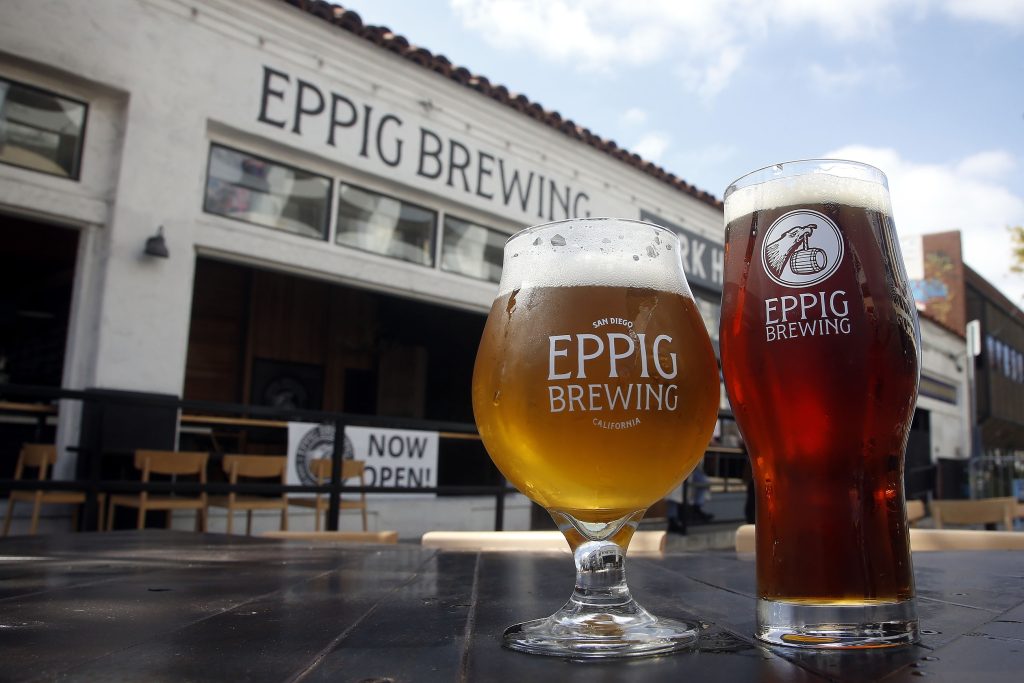
Like the all-online ordering option, Zoom meetings figure to remain a staple at Eppig. As it has been for many businesses, the ability to assemble team members quickly and remotely has proven both convenient and efficient. The company’s biggest problem at this point in the pandemic is attracting applicants for its open positions. Prior to COVID, Warshaw says 20 to 30 candidates would apply for an open beertender position, but now they are lucky to get two or three. Despite that, they are hopeful for the future and proud of their existing team and his vendors for helping them get through a period that so easily could have led to the company’s demise. He and his partners are optimistic for the future, but Warshaw has one request. “Let’s not do this again. One pandemic was more than enough.”
Eppig Brewing’s headquarters is located at 1347 Keystone Way in Vista, its Waterfront Biergarten is located at 2817 Dickens Street in Point Loma and its temporary pop-up tasting room is located at 3794 30th Street in North Park

